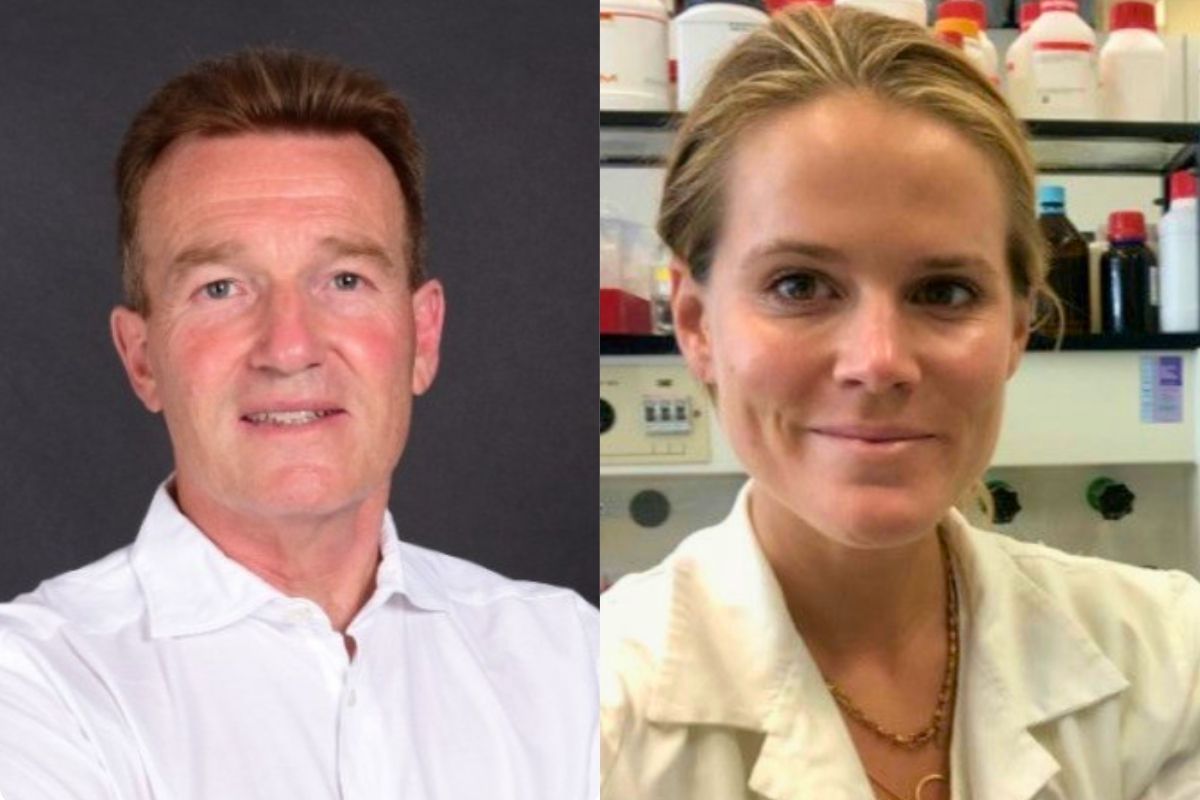Impact Digest | Nutrition & Mental Health

As the global population ages, the role of nutrition in promoting longer, healthier lives has never been more vital. And yet it’s not just our physical health that is impacted by what we eat: increasingly, the role of diet and its links to mental wellbeing are coming to the forefront.
At our Impact Forum: Nutrition and Mental Health on 10 June 2025 we were joined by two expert speakers to discuss how the field looks today, chaired by Valley CEO Christina Senn-Jakobsen. Here’s what we learned…
Key Takeaways
- Mental health is often overlooked in global illness discussions. Even though nutrition plays a central role in mental well-being, it is under-addressed and underfunded.
- Emerging research on the “gut-brain connection” shows just how linked our brains are to what we eat. Food impacts mental health via neurotransmitter production, energy metabolism, and inflammation.
- Nutrient deficiencies can have consequences for our emotional wellbeing, but current farming practices mean modern food is not nutrient-dense enough. Supplementation is increasingly necessary, but sourcing quality products is crucial.
- There’s rising demand for preventive healthcare via dietary approaches. Evidence-based nutritional interventions should complement mental health care.
- Both speakers highlighted the interconnectedness of diet, supplementation, movement sleep and social connection for their influence on mental (and physical) health.
- The panel also brainstormed ways to increase the visibility of food’s role in mental health, such as political engagement and food business participation in healthcare.
“Mental health starts in the mind, but it’s always fueled by the body.”
Insights from Dr.Teresa Cramer, Co-Founder and Chief Science Officer, FoodFor
Teresa credits her early curiosity around food as instrumental in shaping her understanding of cognitive performance and mental resilience. This led to her research work – currently as a Neuroscience Fellow at MIT – and passion for translating this work into everyday impact. Hence her startup FoodFor, which makes functional drinks for Energy, Focus, Calm and Mood.
The food-brain connection
The human brain consumes approximately 25% of dietary energy, yet unlike the liver or muscles, it cannot store energy. It requires a constant supply of key nutrients to maintain cognitive and emotional functions. Teresa stressed that mental wellbeing is closely tied to the production of neurotransmitters, which are directly affected by diet.
She highlighted four key neurochemicals: serotonin for mood and appetite regulation, dopamine for focus and motivation, GABA for anxiety reduction, and ATP, the energy molecule that powers brain activity. “These neurotransmitters don’t make themselves. They rely on the vitamins, minerals, and amino acids that you provide through your diet,” Teresa shared.
Supplementation: necessary or optional?
“I know that a lot of people are not big fans of supplementation. But in my world, it’s not just helpful – it’s often necessary.”
A large Swiss study revealed 59% of primary care patients were deficient in vitamin D and around 40% had insufficient levels of vitamin A and zinc. Teresa emphasised these were not marginalised populations but typical individuals eating everyday diets. These can all affect mood, and supplementation is often necessary to bridge modern dietary gaps. Teresa acknowledged the skepticism around supplements but advocated strongly for their use. She argued that even well-intentioned diets struggle to meet nutritional needs due to food system limitations. Her advice? Seek out EU-sourced and EU-produced supplements for stricter regulation and higher quality standards.
Preventive care and the need for innovation
“There’s a very big disconnect between what a patient experiences and how it’s being diagnosed.”
Teresa criticised the current diagnostic models in psychiatry, citing a study showing patients with the same symptoms received different diagnoses across the US, Germany, and India. She called for a shift to preventive tools, such as biomarker tracking, like those her co-panelist Roland is developing. She concluded with a convincing call for better public awareness and systemic change to bring food and mental health into mainstream medical and political attention.
“Mental health isn’t just in your head—it starts in your gut, in your food, and in your daily habits.”
Insights from Roland Pfeuti, Co-founder & Director, HEALTHY-LONGER GmbH
A personal origin story
Roland began with a deeply personal account: he and his wife pivoted their careers in response to challenges surrounding their son’s health. It was this experience that led to the founding of HEALTHY-LONGER, a health platform offering personalised nutrition assessments and supplement recommendations.
Nutrient decline = mental health challenges?
“What your food ate matters. If it’s not in the soil, it’s not on your plate, and it won’t reach your brain.”
Echoing Teresa, Roland pointed out that modern agricultural practices – especially postwar industrial farming – have severely degraded soil health, stripping fruits and vegetables of essential nutrients.As a result, even a diet that appears balanced may not provide sufficient micronutrients to support mental well-being.
Personalised assessment & advice
HEALTHY-LONGER’s offering includes at-home assessments, personalised health reports and tailored dietary and supplement recommendations. These reports are designed to be actionable, offering specific guidance rather than generic advice: “You can go online, order an assessment, and get recommendations tailored to your body’s needs.” Roland also issued a warning on supplement quality: he cautioned against cheap, synthetic supplements, often found online and advocated for natural, well-regulated alternatives backed by proper testing.
Political engagement & public awareness
“There’s a big opportunity for the food sector to step into mental and preventive health care.”
Roland agreed with Teresa’s remarks that mental health remains overlooked in public discourse and healthcare spending, and stressed that food businesses could and should play a proactive role in preventive mental health care. HEALTHY-LONGER supports the idea of greater political engagement and education campaigns. Roland positioned his venture as not just a health business, but a movement toward holistic, food-based well-being.
Hungry for more?
Read our previous Impact Digests.
Latest News
The Cultured Hub unveils plant cell culturing for cocoa, coffee, and other ingredients
Valley partner, The Cultured Hub, has...
Pow.Bio and Bühler join forces to advance next-generation precision fermentation
Pow.Bio, the pioneer in AI-enabled...
The perfect mix of talent and tech: empowering startups in the Swiss food ecosystem
Innovation succeeds when the right...
Tetra Pak acquires Bioreactors.net to accelerate solutions for New Food
Tetra Pak Processing Equipment...



